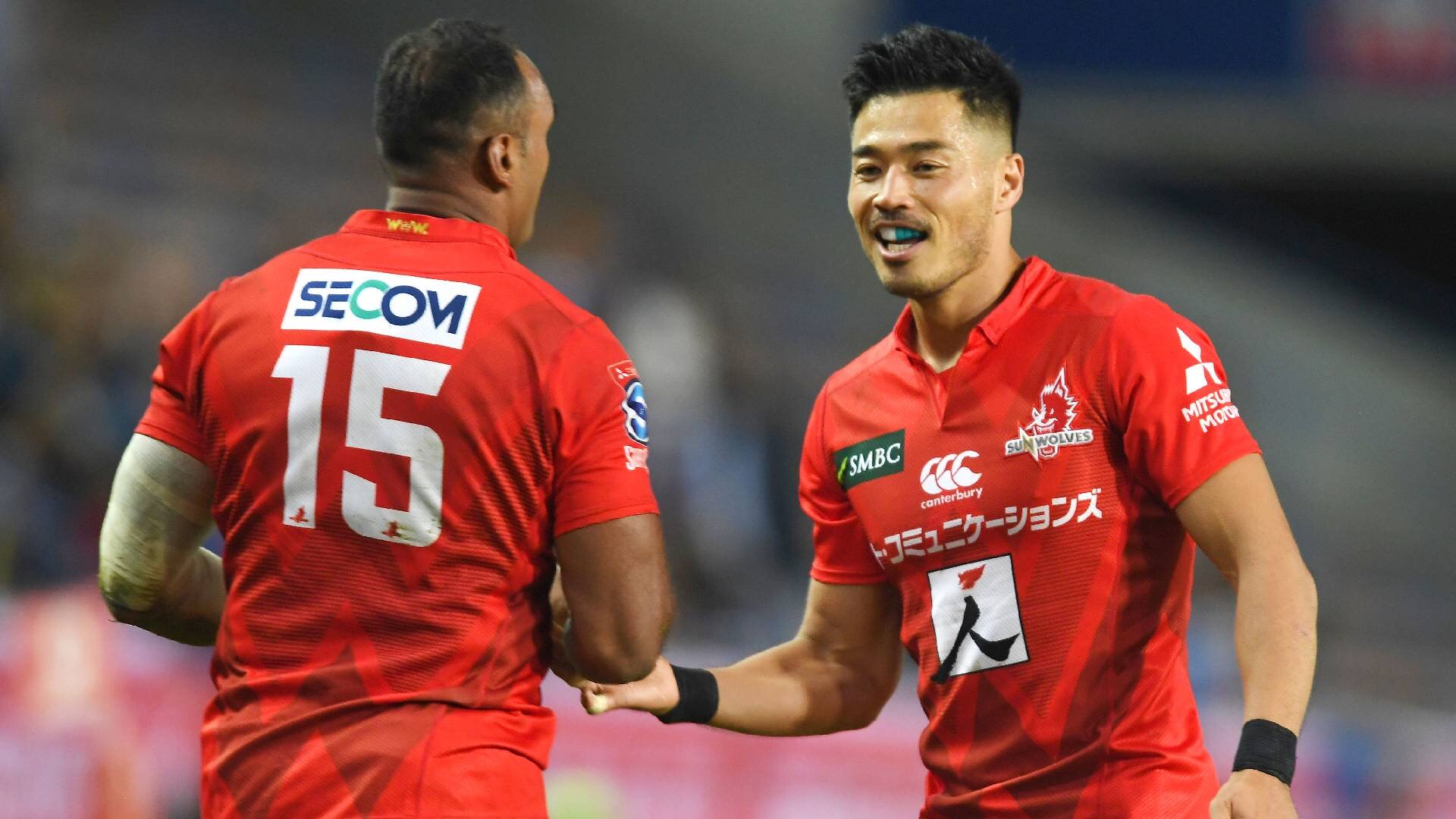Sunwolves set for Super Rugby return, Japan primed for Rugby Championship inclusion - report

The Sunwolves could be set for a shock induction back into Super Rugby on the back of Japan’s success at the World Cup.
The nation’s maiden appearance in the knockout stages of the tournament could also be enough to see the Brave Blossoms earn a place in the Rugby Championship alongside New Zealand, Australia, South Africa and Argentina.
According to a report from Newshub, the prospect of admitting both teams into the respective competitions will be discussed at a SANZAAR meeting in Tokyo on Friday.
The revelation comes just days after Japan completed their best-ever finish at a World Cup, bowing out in front of their home fans as beaten quarter-finalists after going down 26-3 at the hands of the Springboks at Tokyo Stadium on Sunday.
Through their scintillating, attacking brand of rugby, which yielded pool play wins against European heavyweights Ireland and Scotland, the Brave Blossoms have captured the imagination of the Japanese public.
Continue reading below…
An estimated 54.8 million people tuning in to watch their side defeat the Scots to secure their place in the play-offs a week-and-a-half ago – a larger television audience than that of the 2002 FIFA World Cup final, which was held in Yokohama.
Led by highly-regarded Kiwi coaching duo Jamie Joseph and Tony Brown, Japan’s on-field success has significantly raised the profile of rugby in the country, which has forced a re-think from SANZAAR of their involvement with the nation’s future in the sport.
The governing body of the southern hemisphere’s premier competitions announced earlier this year it would be omitting the underperforming Sunwolves from Super Rugby following the 2020 season as the competition looked to revert from a 15-team conference system back to a 14-team round-robin format, which was last used nine years ago.
The @wallabies have returned to Australia accepting they just weren't good enough after their humbling @rugbyworldcup quarter-final exit. #RWC2019 https://t.co/HPdcdAtZjF
— RugbyPass (@RugbyPass) October 22, 2019
The decision to reduce the number of teams and change the competition format came after a plethora of negative feedback about Super Rugby’s play-off structure, which currently sees the winners of the New Zealand, Australian and South African conferences claim the top three finals spots, followed by five wildcard sides.
That system, though, has led to teams placing ahead of other franchises despite having accumulated more competition points, as has happened in the five most recent seasons, bringing into question the fairness and equitability of the play-off structure.
Despite the exciting, yet largely fruitless, style of rugby the Sunwolves – who have won just eight of their 62 outings since their debut in 2016 – provided the competition with, the Japanese Rugby Football Union failed to negotiate a contract with SANZAAR to play beyond next year.
Their inability to sign an agreement around the Sunwolves’ involvement in the league came down to financial reasons, with reports emerging that the franchise were ordered to pay around US$9 million per season in participation fees, something of which no other club in Super Rugby has to do.
https://www.instagram.com/p/B34qDKzAyBU/?utm_source=ig_web_copy_link
However, Japan’s unprecedented success at the World Cup could force a tug-of-war between the Six Nations and Rugby Championship for the Brave Blossoms’ services, as suggested by World Rugby chief executive Brett Gosper.
“Certainly if I was in their shoes I’d be very keen to have Japan in my competition sooner rather than later,” Gosper told Newshub.
With a growing audience of rugby fans among Japan’s population of 128 million, combined with the prosperity of the Japanese economy, the world’s sixth-ranked nation has become hot property within the global game.
The riches on offer in Europe with the Six Nations would give Japan plenty of incentive to stay in the northern hemisphere, but the Sunwolves’ participation in Super Rugby could hold the key for SANZAAR as they look to lure Japan south.
Steve Hansen has given his biggest hint yet on who he thinks should take over his top job when he steps down after the Rugby World Cup. #RWC2019 https://t.co/40U53HotM7
— RugbyPass (@RugbyPass) October 21, 2019
“That’s entirely their call,” Gosper said of where Japan could end up following this World Cup.
“We proposed a nations championship that had Japan very much playing at the top table and maybe they’ll see it that way for their own particular championship.”
Time will tell where the Brave Blossoms and Sunwolves will end up at club and international level, but regardless of where their futures lie, moves have to be made swiftly in order to ensure Japan can continue their rapid ascendency within the rugby world.
In other news:















